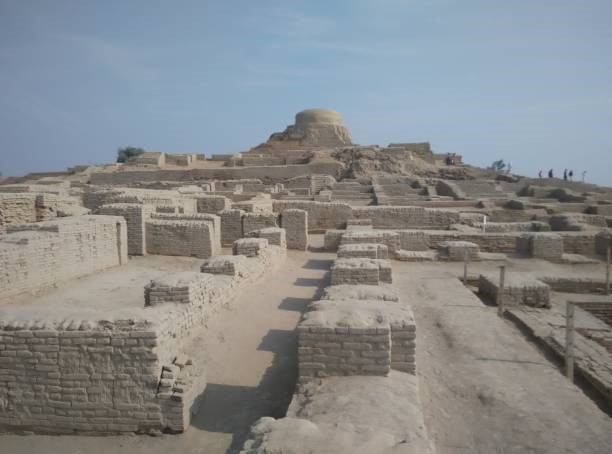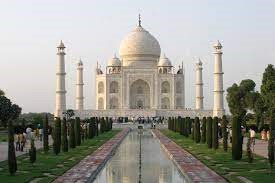History#Ruralisation#Britishrule#Mughalempire
There is a fallacy of logic in History that there is ‘nothing new can happen in Human History’, which coincide the study of History to the religious thought that this world is the eternal trap of Birth and Re-Birth and nothing new is happening in terms of the substance. It’s only improvisation of the old.

It is accepted officially in Academic circles that Neolithic Age started late in India when it is compared with other neolithic cultures of the world. However, once it has taken Birth it has taken a great leap in terms of civilization since its inception, it is successfully passing through various meanders and labyrinths of Historical development. History doesn’t take a linear path rather its path is Zig Zag or Haphazard. Here, it is believed that the Indus civilization which is considered an Urban Civilization succeeded by a relatively more rural culture. One of the factors which are considered for the downfall of the Urban Civilization of Indus or the fall of its cities was the loss of trade with its largest trading partner Mesopotamia around 1700 B.C. Urban Centres which were more appropriate and based on Trade and Commerce converted into Rural sites, which were more local and the metal which was dominant was Copper with stone i.e. Chalco-lithic Culture, where Indus people reached the level of Bronze which is a combination of Copper and Tin. In absence of Tin which was primarily an Export material, the successive culture was reduced to copper. It justifies the Structuralist hypothesis or Marxist outlook of defining History on the basis of Economy or Factors of Production as the very basis of the entire Human Construct, and Ruralisation and Urbanization are two sides of one coin. This trend happened again during the 9th C.E. when it is believed that India again went for the Ruralisation of its Economy. Again, this cycle oscillated towards Urbanization during Delhi Sultanate followed by Mughal Empire. Then again during British Raj, it is believed that the Indian economy deviated towards Ruralisation due to the policies adopted by the Raj. This phenomenon is well researched by the then Freedom Fighters like Dada Bhai Naoroji who has written Poverty and Un-British rule in India and by R.C. Dutt, a retired ICS, who has written Economic History of India. However, American Economist Morris-de-Morris doesn’t agree with the concept of De-Industrialization and the Ruralisation of India. This outbreak of corona has pushed us back again, Brakes are forcefully applied to our economic activities and a huge migration is taking place of the migrant workers towards the Villages and to different States.

History is repeating itself. In all of this Crisis Hour, one silver line of hope still exists which again comes from our historical background that India is the story of falling and rising again, it is the story from New Moon to Full Moon. No other civilization has survived for this long period of History, it is surely the Indian Civilization that is surviving despite all odds. Indian Culture is successful in maintaining its core Values and adopting numerous terminal Values, this process can be termed in sociological terms ‘Orthogenesis’ and ‘Hetrogenesis’. It is true Globalized world is a world of Innovation that brings disruptions, every ingredient is reduced to temporal status but as Michael Porter has explained that it also becomes normal when markets settle down. Committing the crime of generalization and inter-disciplinary analogy and Historical continuity, one should believe India will be on its track soon as Survival is its Core Value
